
Shrubs Around Las Vegas, Vegetation Around Las Vegas
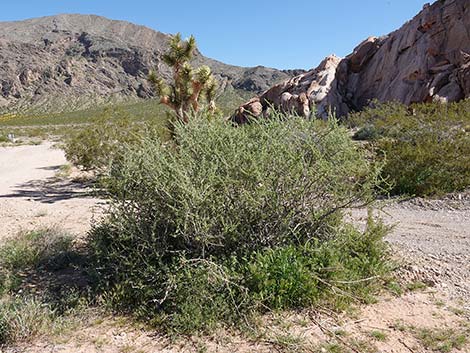 |
General: Peach Thorn (Lycium cooperi), one of the Wolfberrys, is a stout, upright shrub with stiff thorns. These shrubs are deciduous, quickly losing their leaves as the summer heats up. Peach Thorn usually is leafless, but during spring it puts out leaves that are relatively long and oval. The flower tube (9-12 mm) and flower lobes are short. The calyx (fused sepals) is long (8-15 mm) with long sepal lobes (4-5 mm). The sepals reach about halfway out the floral tube. The fruits are yellow to orange when ripe. Compared to our other Wolfberrys, the leaves are long and oval, the flower tube is wide, and the calyx is long. Peach Thorn is an uncommon component of vegetation communities in drier areas along washes, on bajadas, and into the lower mountains in the Lower Sonoran (Creosote-Bursage Flats) and Upper Sonoran (Mojave Desert Scrub) life zones. Most of the year, however, when it has no leaves, it is difficult to separate from other Wolfberrys. Family: Nightshade (Solanaceae). |
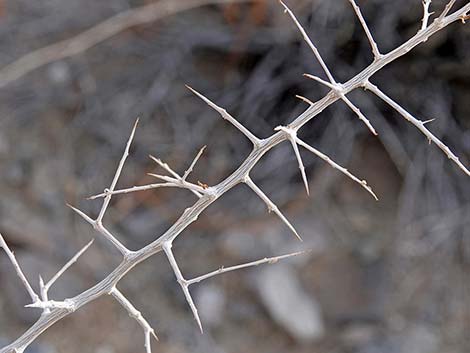 |
Other Names: Cooper's Wolfberry, Cooper's Desert-thorn, Peachthorn. Plant Form: Upright, stout shrubs. Height: To about 12 feet, usually 3-5 feet. Bark: Whitish. Stems: Generally upright, stout, each tiny stem tipped with a thorn. Leaves: Long, flat, and oval. Note, however, that young leaves can be somewhat round and fleshy, much like Anderson's Desert-thorn. Leaves covered with short, soft hairs. |
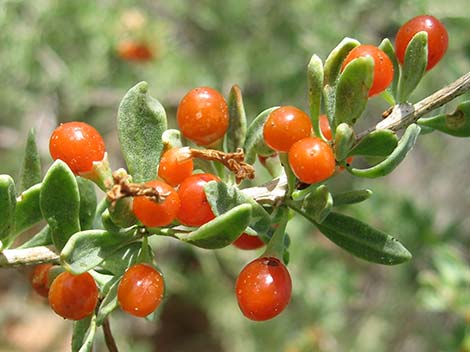 |
Flowers: Blooms during spring. Inflorescence: flowers from leaf axils. Flower funnel-shaped with 4 or 5 spreading lips, white aging to purple. Calyx extending about halfway out the flower tube, calyx lobes longer than 2 mm. Fruit: Fruit is a firm berry, green aging to yellow and orange; green fruit with 2 cross-grooves above middle. Seeds many. Habitat: Dry, well-drained sandy, gravelly, and rocky soils on upper bajadas and moderate slopes in the lower mountains. Elevation: To about 6,000 feet. Distribution: California deserts to extreme SW Utah and W Arizona. Comments: The fruits are edible, but I don't think they taste very good. |
 |
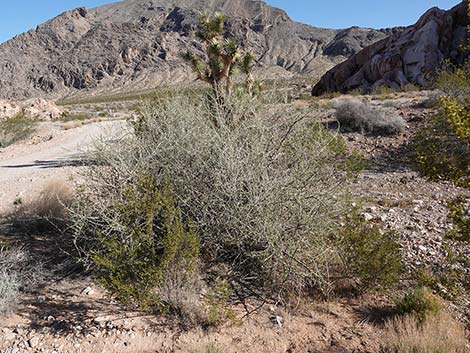 |
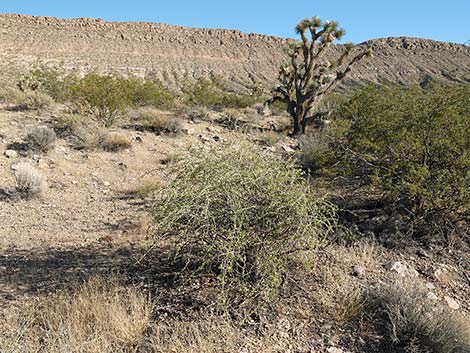 |
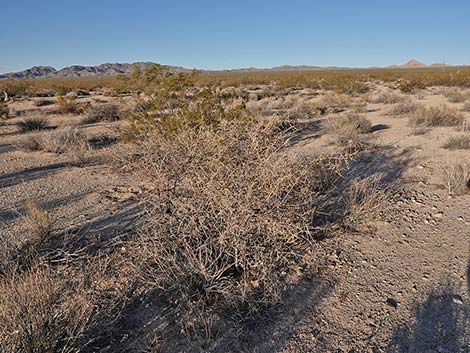 |
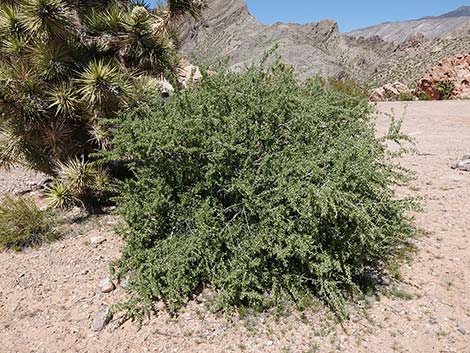 |
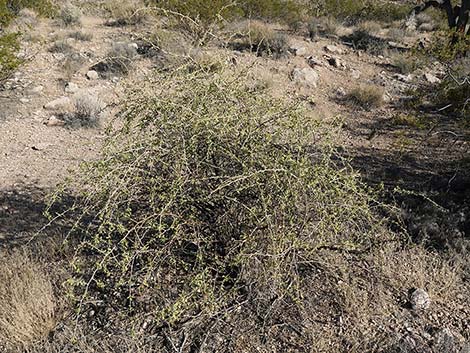 |
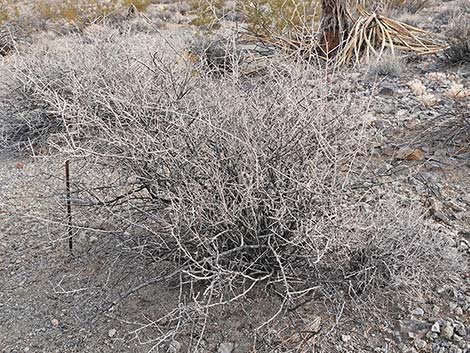 |
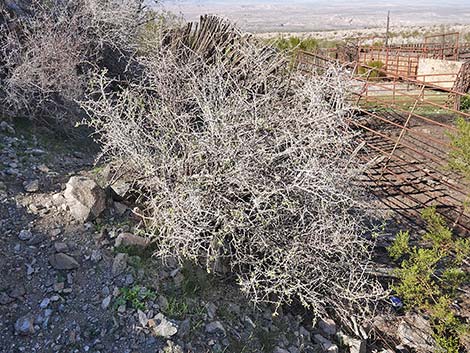 |
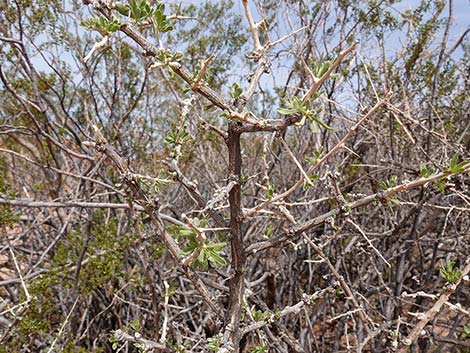 |
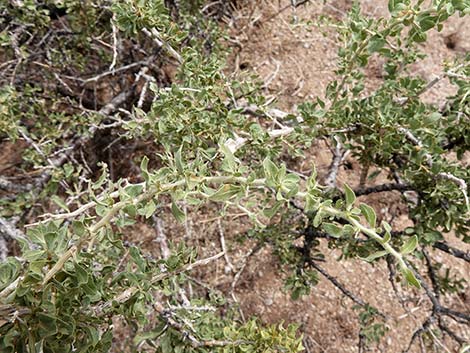 |
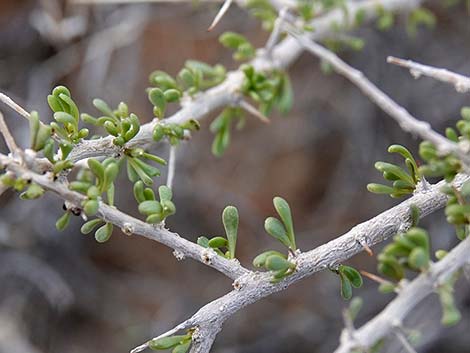 Young leaves appear round and fleshy |
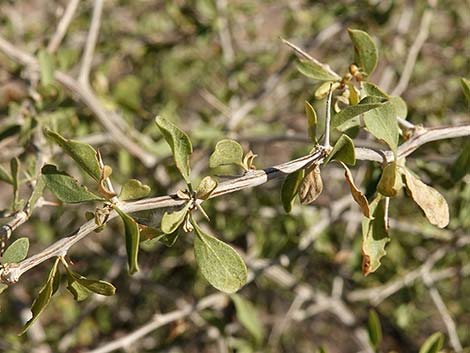 Older leaves flat and broad |
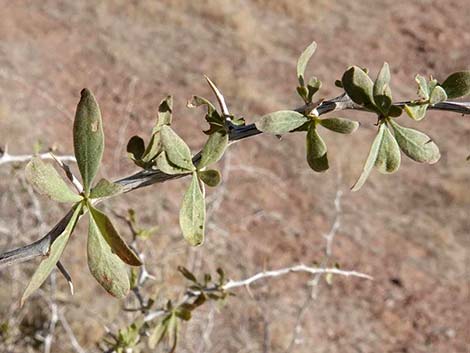 |
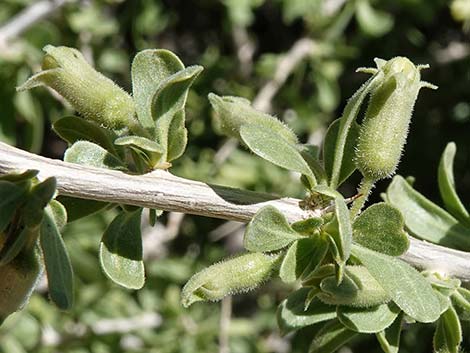 |
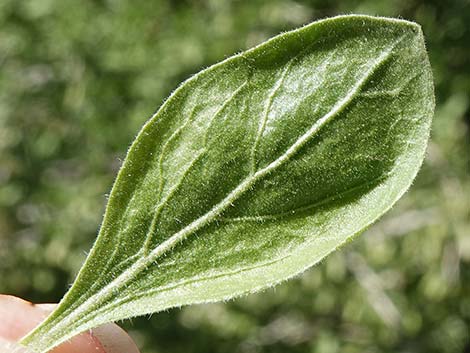 |
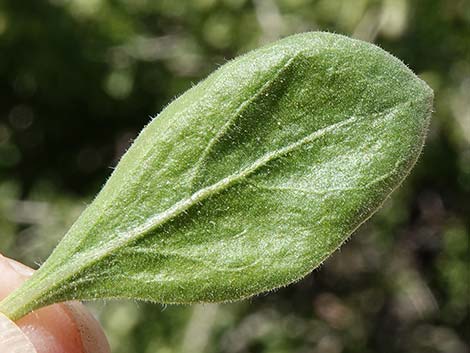 |
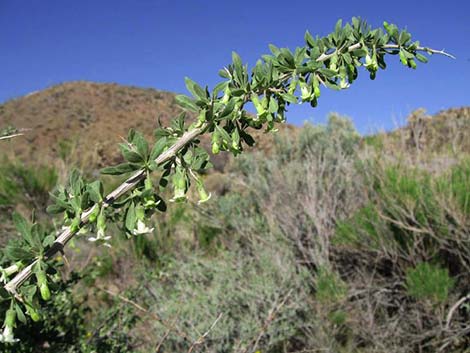 |
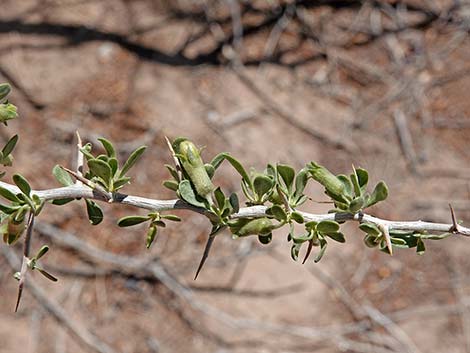 |
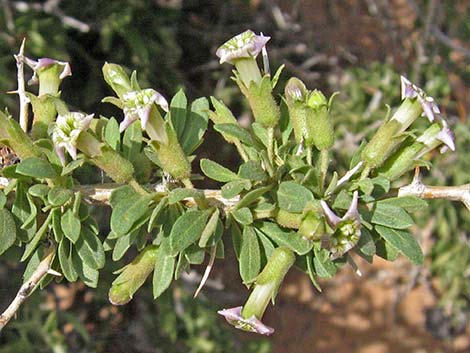 |
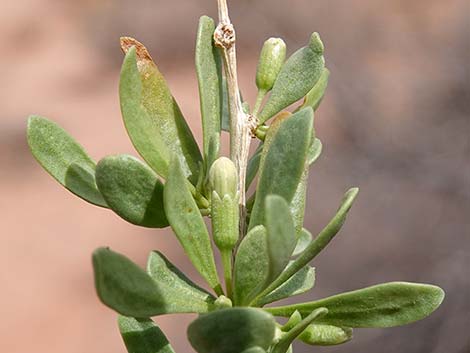 |
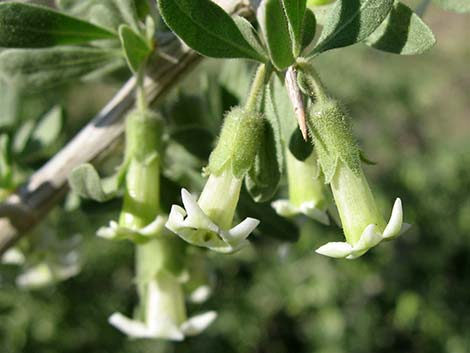 Calyx extending about halfway out the flower tube |
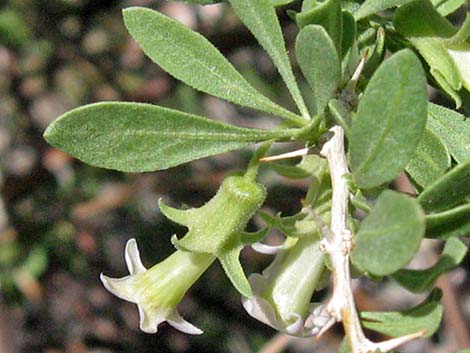 Calyx lobes longer than 2 mm |
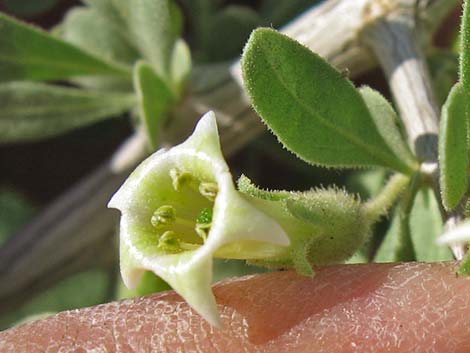 Fresh flowers white |
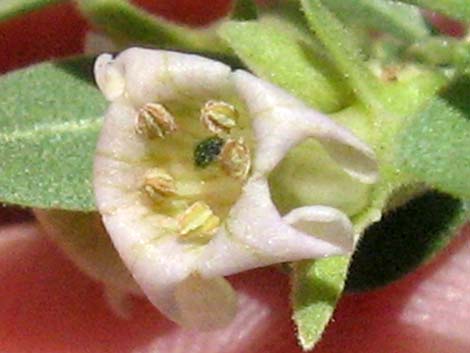 Fresh flowers white |
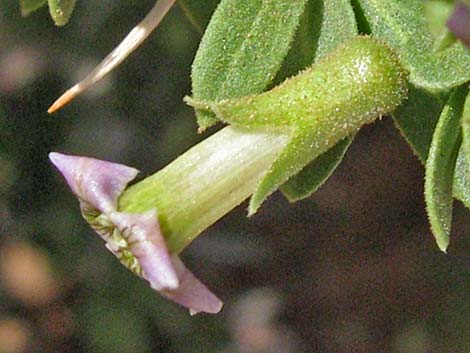 Flowers aging to purple |
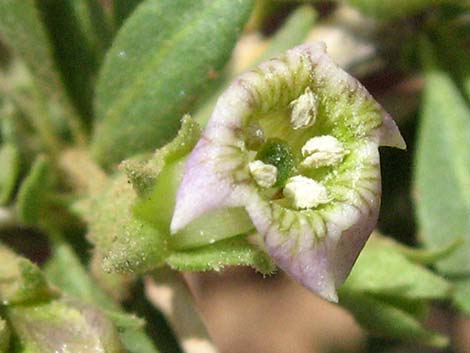 Flowers aging to purple |
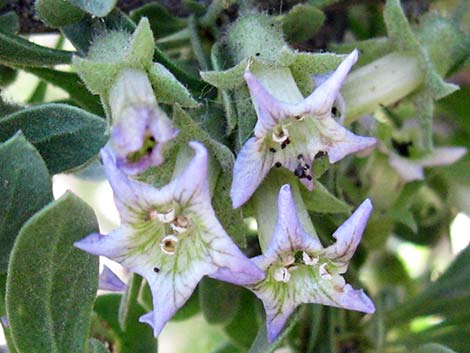 Flowers aging to purple |
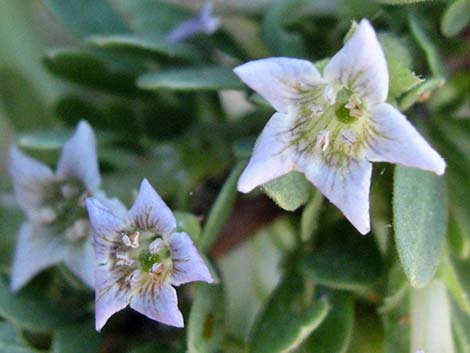 Flowers aging to purple |
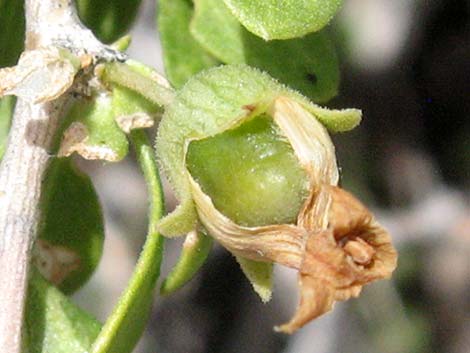 developing fruit with aging flower |
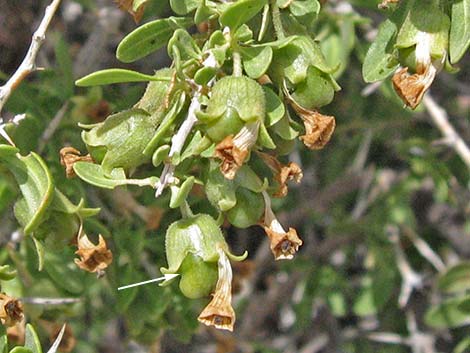 Green fruit with 2 cross-grooves above middle |
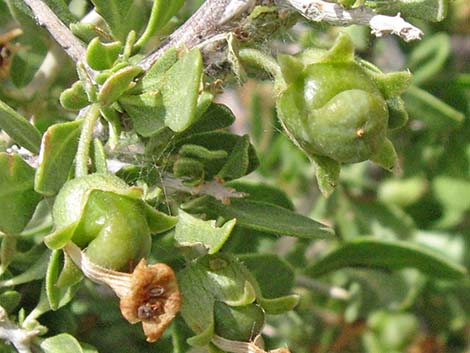 Green fruit with 2 cross-grooves above middle |
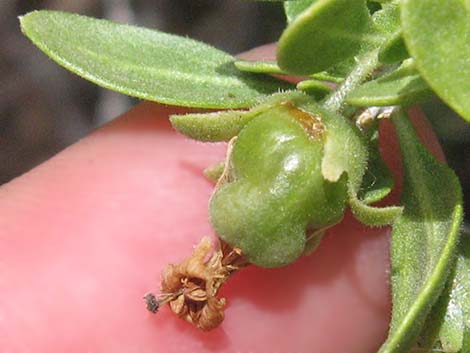 Green fruit with 2 cross-grooves above middle |
 Fruit is a firm berry, green aging to yellow and orange |
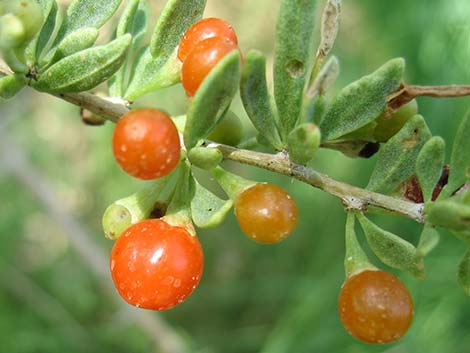 Fruit is a firm berry, green aging to yellow and orange |
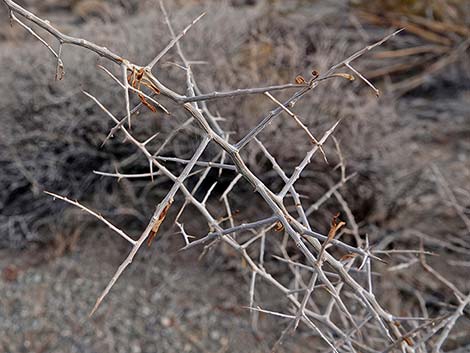 Thorny shrub from summer through winter |
 Thorns sometimes long |
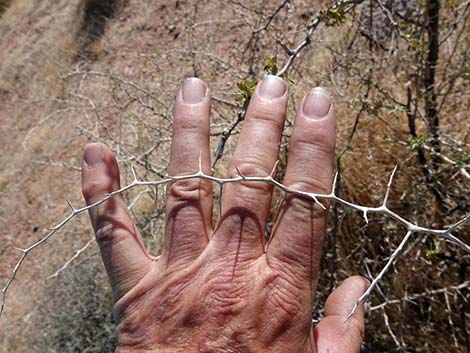 Thorns sometimes short |
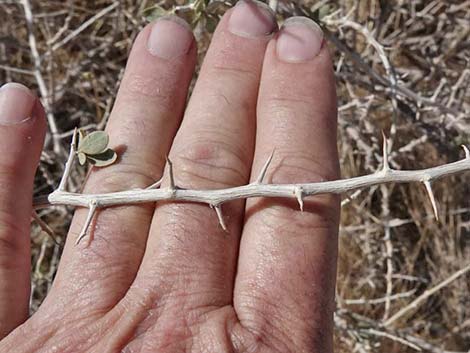 Thorns sometimes short |
Note: All distances, elevations, and other facts are approximate. Names generally follow the USDA database.
![]() ; Last updated 240915
; Last updated 240915
| All Shrubs | Plant Species Index | Glossary | Copyright, Conditions, Disclaimer | Home |